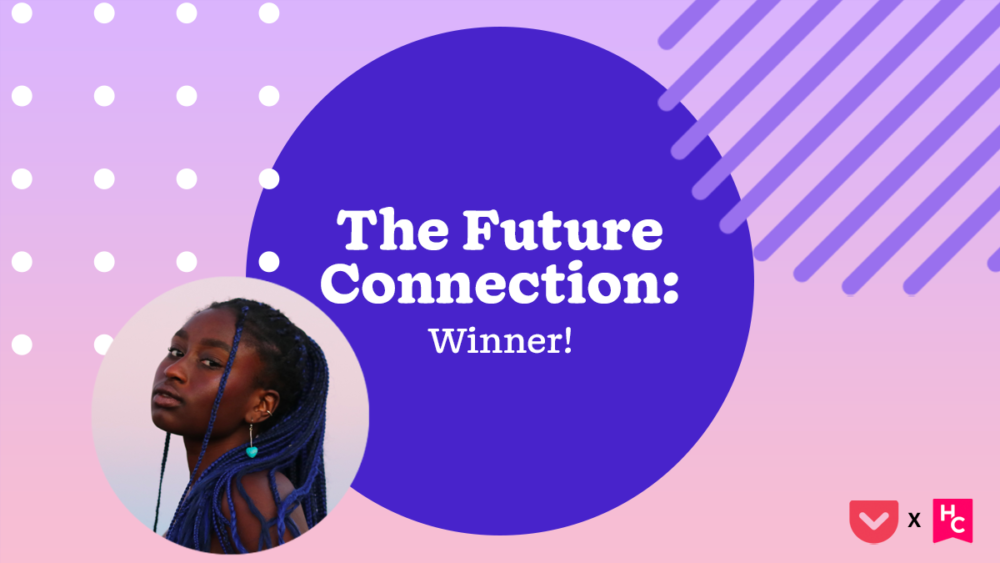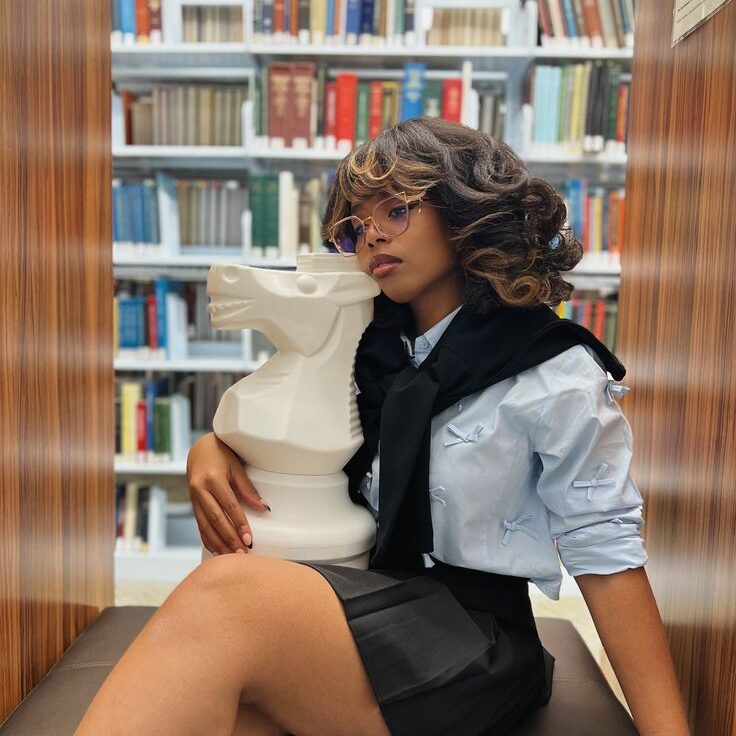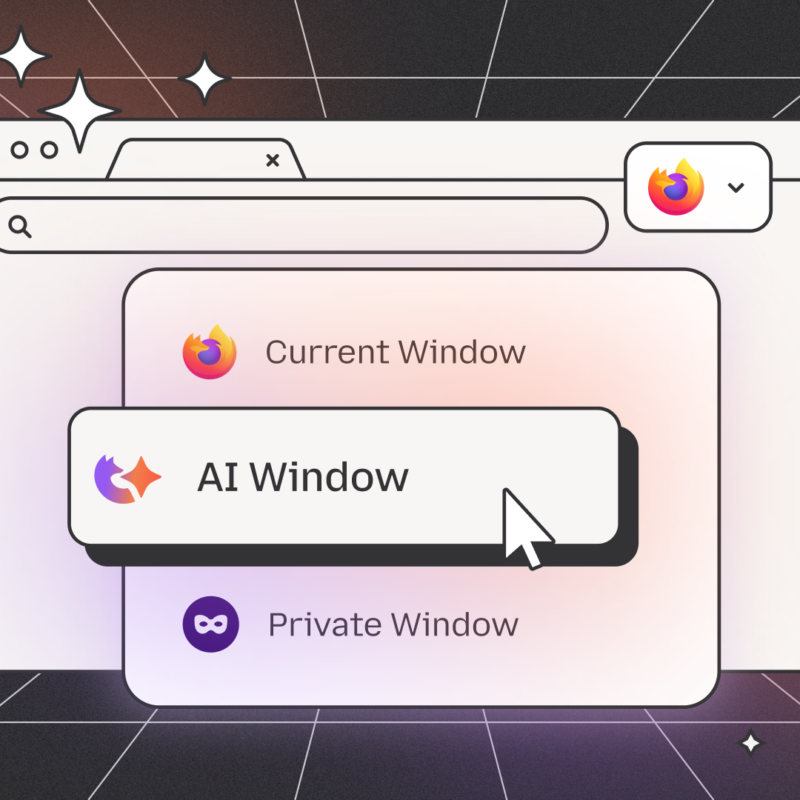This past May, Pocket and HerCampus teamed up to announce an essay contest asking college students to reflect on what it’s like to come of age in a hyper-online world for a $5,000 cash prize and the opportunity to be published and promoted on Pocket. There were over 800 entries, and we are excited to announce the winner of our contest — Esther Omole — and share her essay.
Angle your head between two mirrors and watch yourself watching yourself for a while. I never understood what my 7-year-old self loved about it. Sandwiched between two floor-length mirrors, I would pretend that the little Black girls dancing behind me in an accordion-like formation were my back up, my chorus. Now I feel suffocated by the memory of cascading versions of myself, recessing further than my eyes could trace. In a hyper-online world, this feeling is mirrored in the way I see my image read, projected, and thrust back to me by unflinching algorithms and ever-reflective screens.
As a result of the pandemic, I went into my final year of college waging a fervent war against my own loneliness. Like most, I clung to my devices as a way of digging my feet (or, in this case, the ever active thumb) into a world that was increasingly out of physical reach. I dragged my eyes down timelines, devoted daily scrolls to TikTok, and stared longingly at my explore page until it blurred into an addictive, multicolored collage. A host of unknown companies were learning me everyday via the internet, which had become my lounge, workplace, and school.
Through my increasing (admittedly, delicious) entanglement with the web, I got content that was more sharply tailored to me. As I grew lonelier, I offered up more time. I scrutinized my profiles, comparing myself to people who shared my interests, my age, and even likeness live out successes and failures that I hadn’t. I saw Black women like me harassed, dehumanized, and belittled on social media daily. I felt over-rendered by images of what I had told the algorithm I wanted, things that were like me but not quite me.
The result was a feeling of suffocation not unlike being wedged between the mirrors. I was consumed by my profiles, followers, and peers–like I was being guided along the current of my online life, watching unfamiliar mirror images of me bounce from platform to platform. Black women are subject to this kind of dissonance independent of the internet—we are often portrayed as universally hyper-sexual, hyper-masculine, angry, and resilient to pain in popular media. This is exacerbated by the hyper-connected online world, which often promotes these skewed archetypes of our own bodies and projects them back at us.
Confronted with these images at all angles, I searched for ways to reclaim the myriad pathways technology was offering me. I listened to other Black women share stories about loneliness online, found networks like Therapy for Black girls, and set up telehealth appointments all on the same screen. The globalized online world became a gateway to explore my individual complexity, the identity that was unique to me. I could be like my 7 years old self, strengthened by my own undulating reflections and multitudes. Instead of being made an unmade, scrutinized and hidden, I was doing the creating, watching myself grow in the selfie cam of my online world with pride. And I loved it.
Esther Abisola Omole is a Nigerian American visual artist, poet, and musician from Broward County, Florida. She is a recent graduate at Stanford University, where she studied Architecture and African and African American Studies. She is especially enamored with Black feminists poetics, Black creation and space making.



